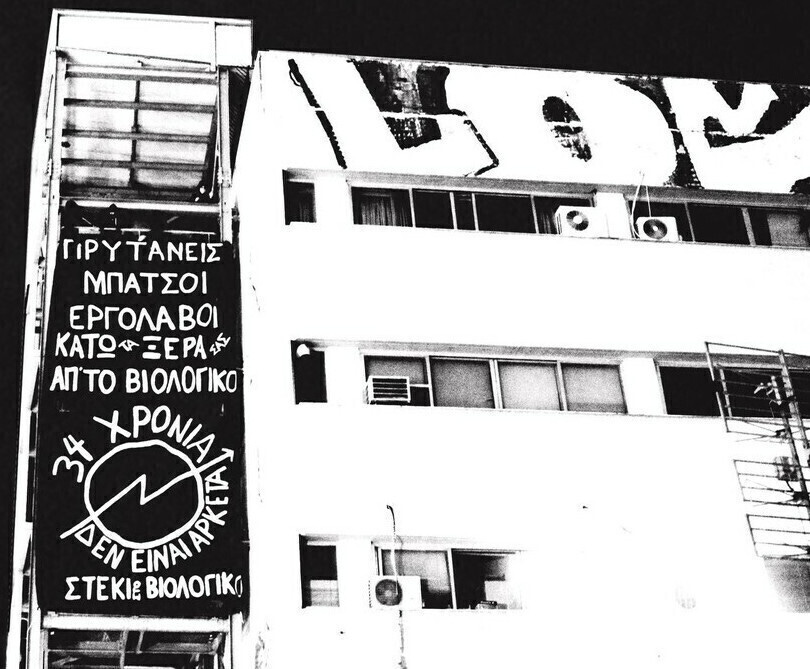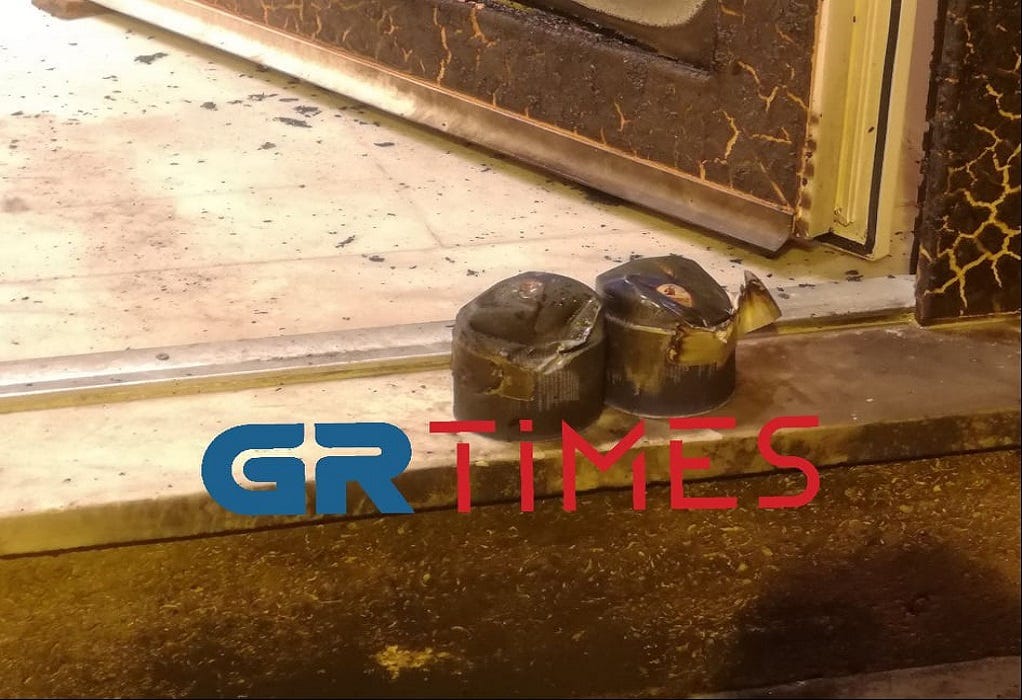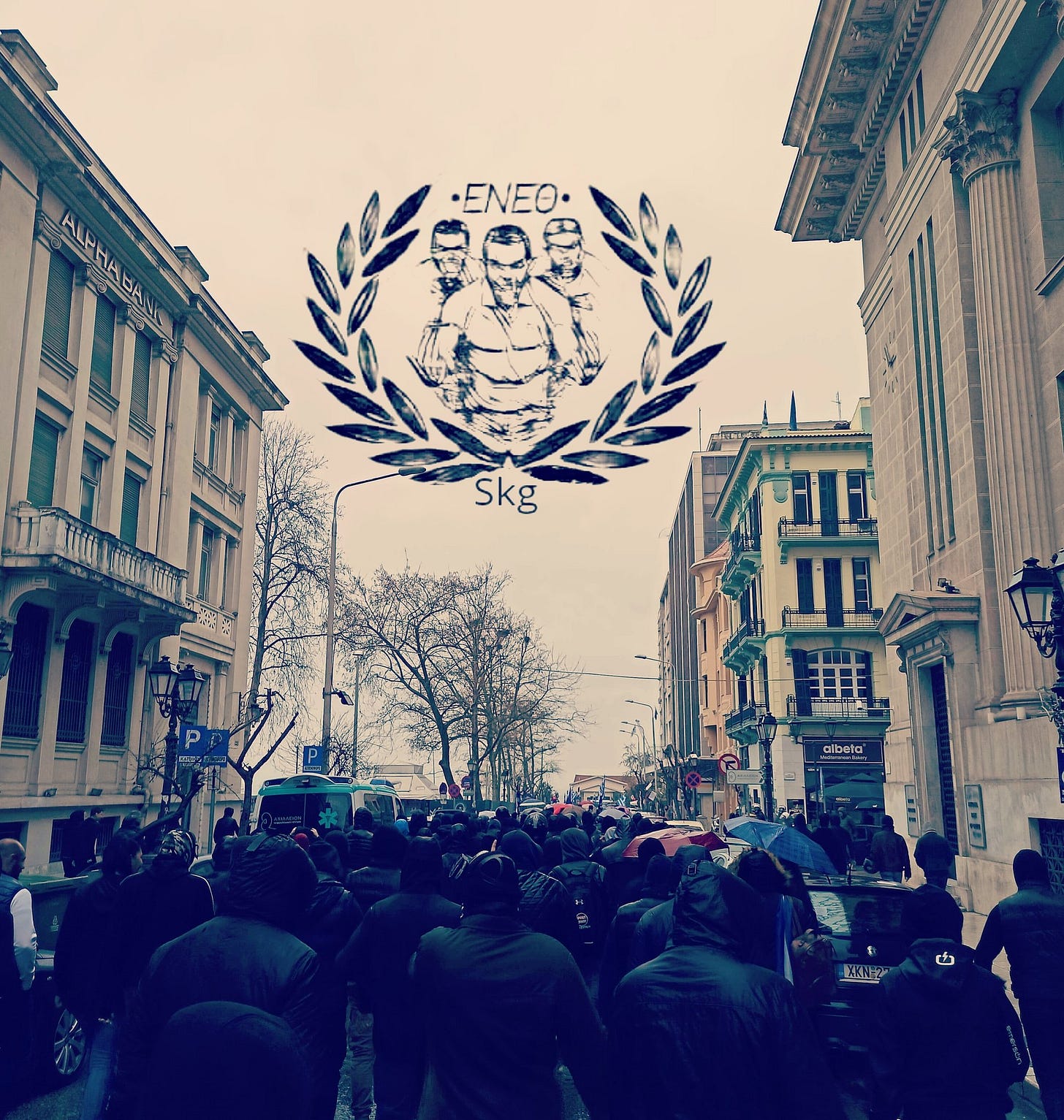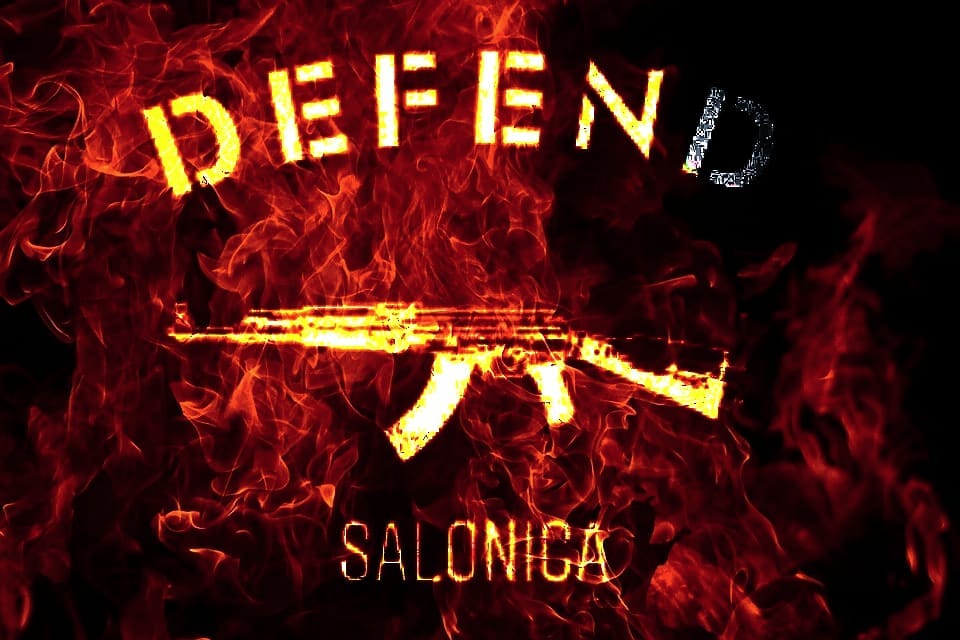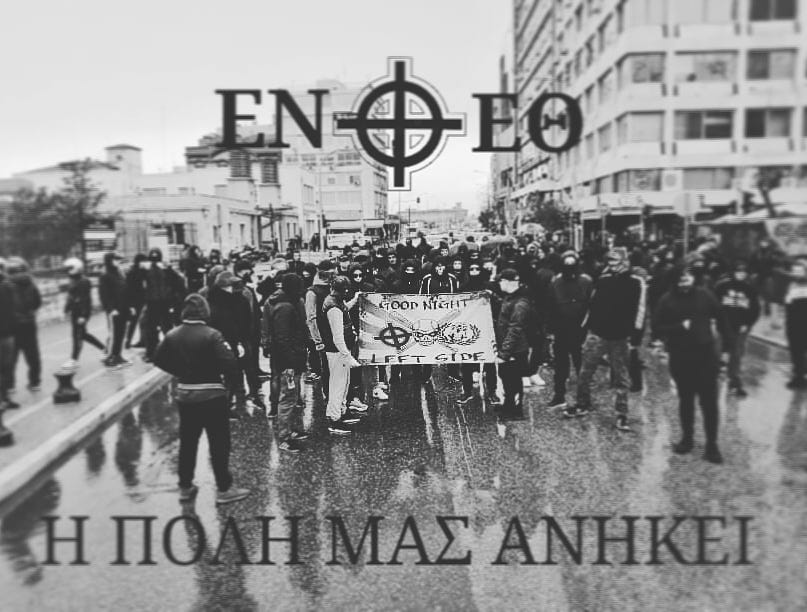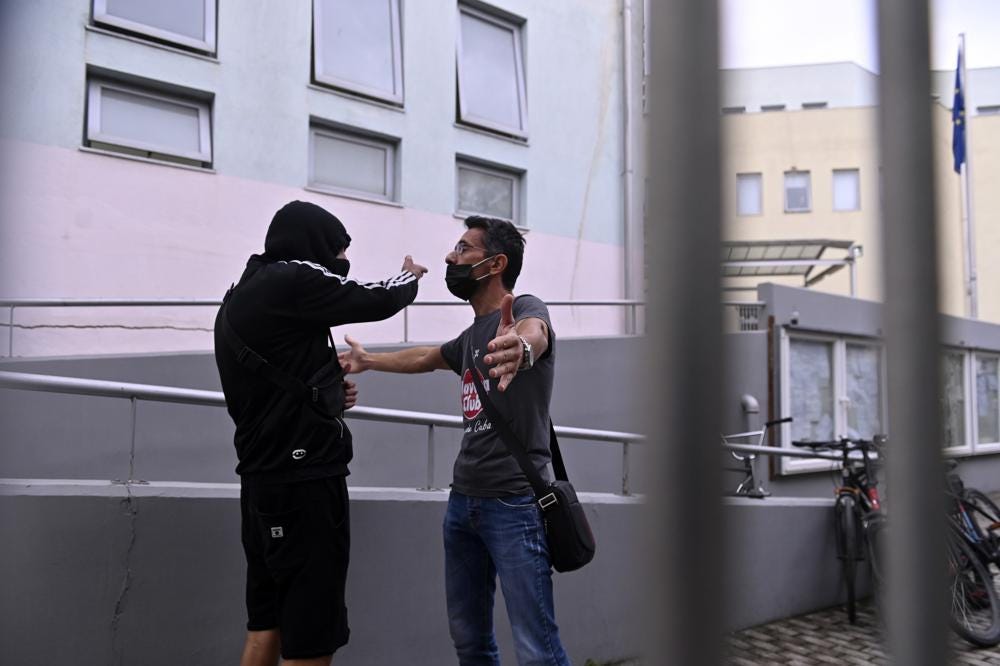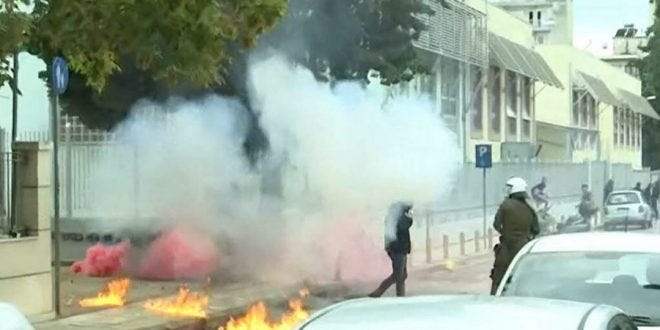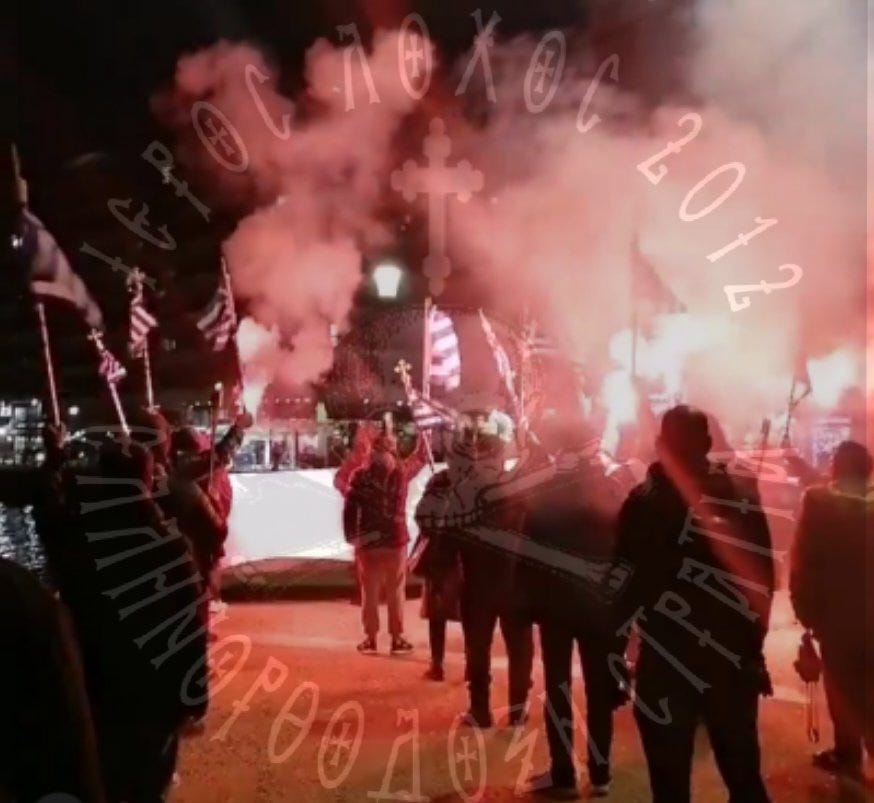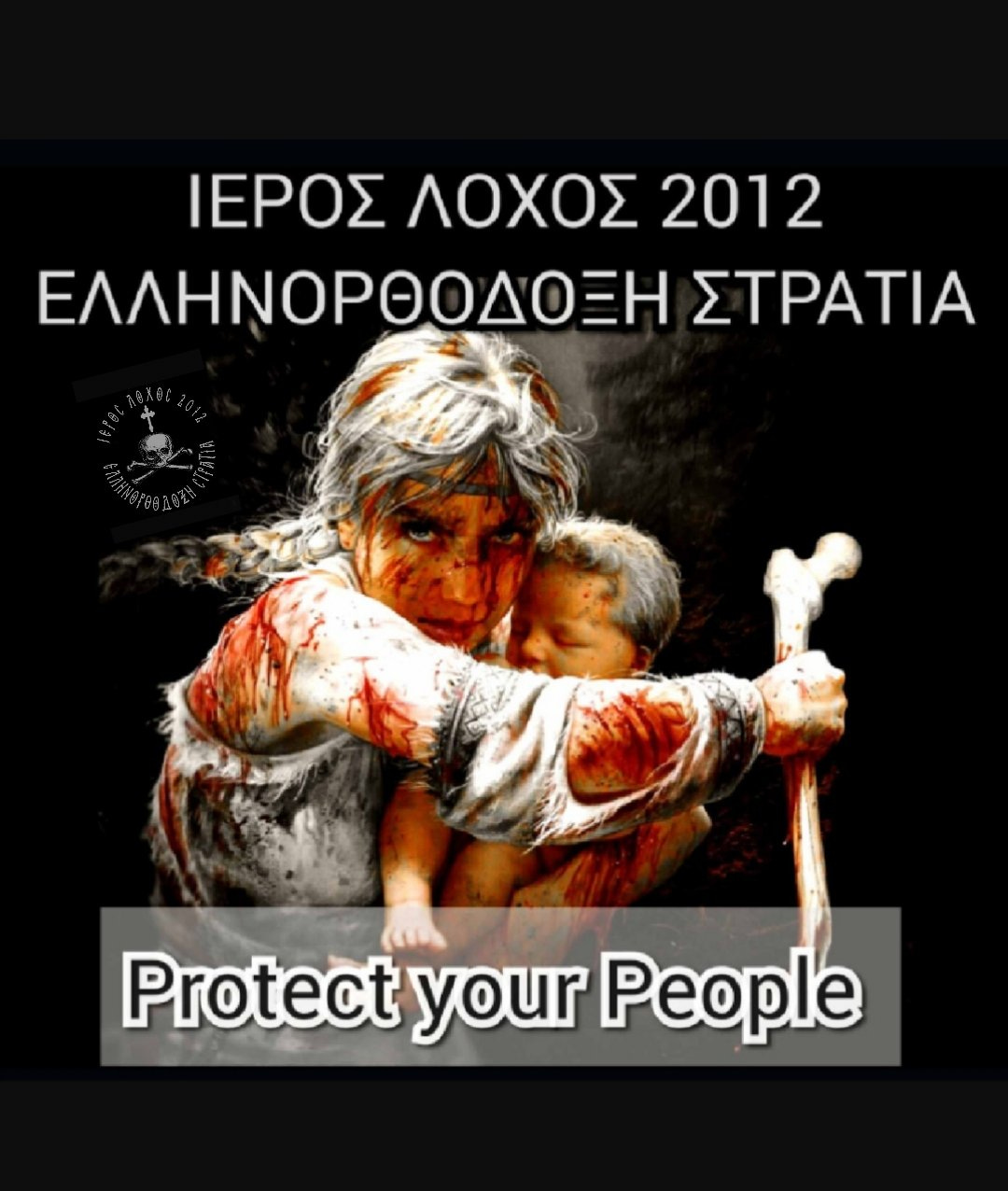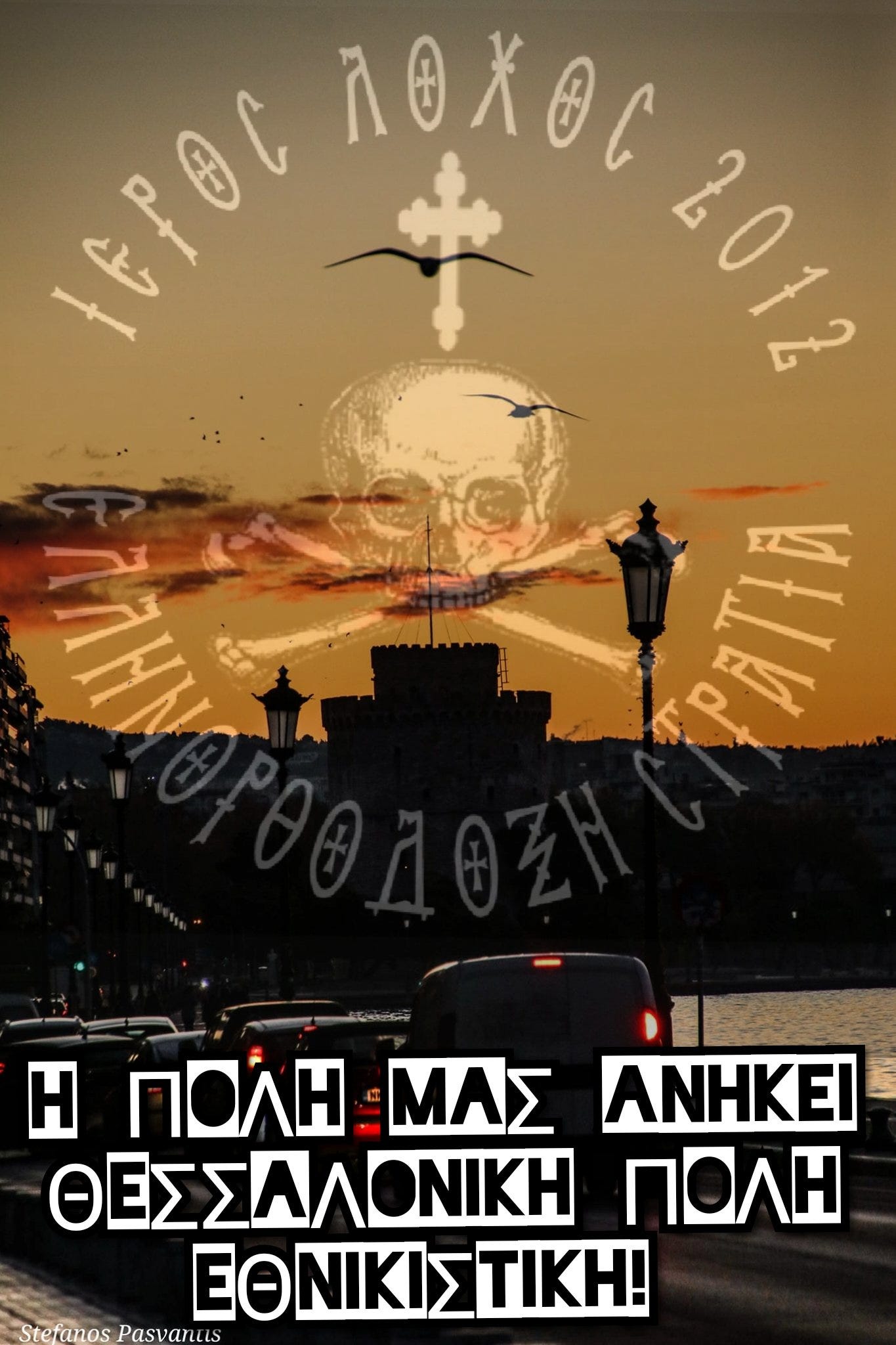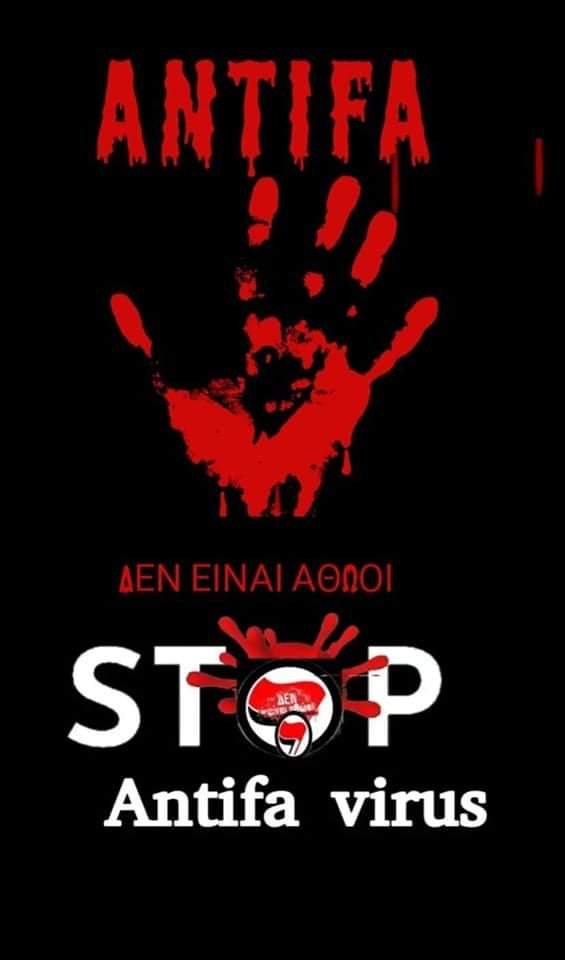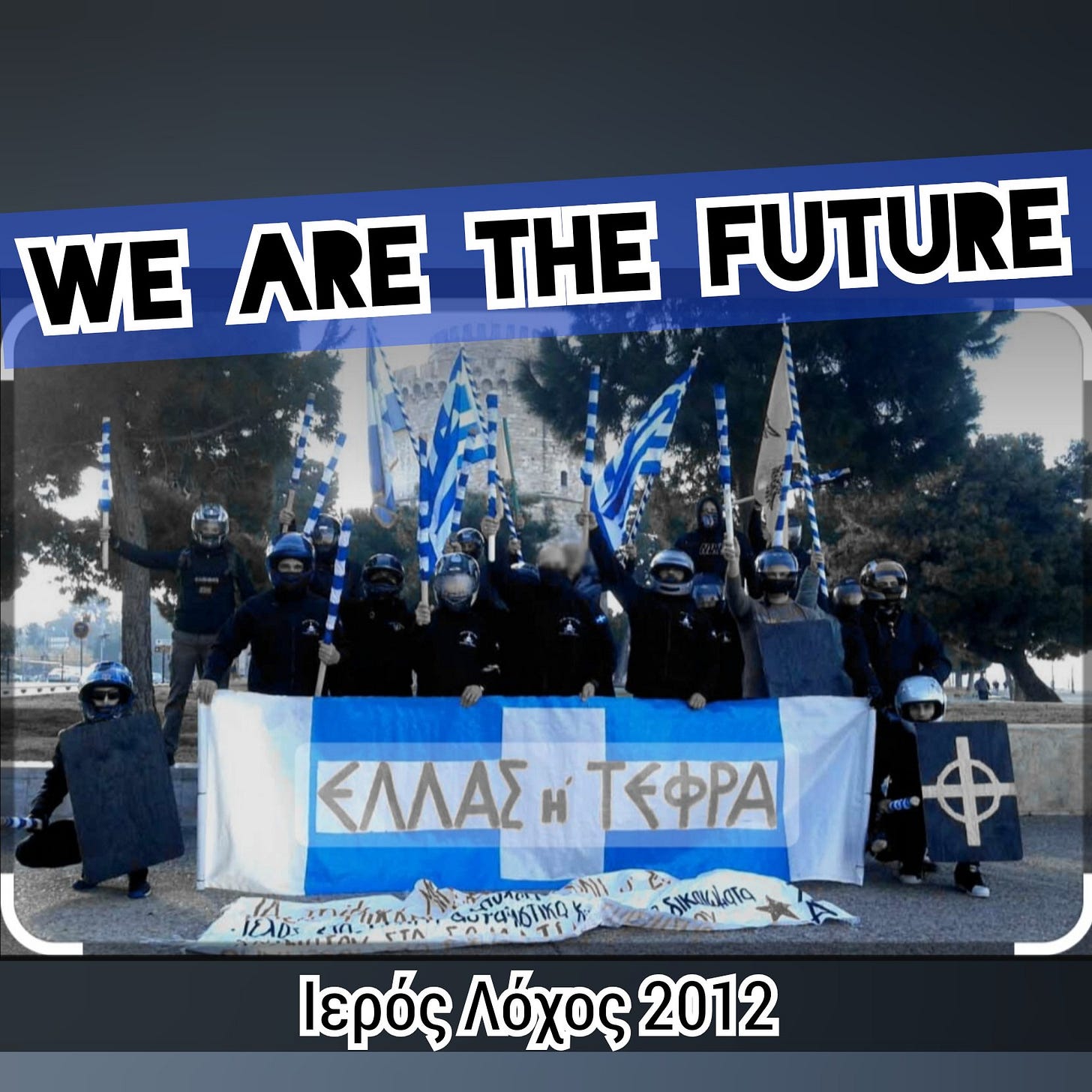The Attacks
Anarchists in Thessaloniki have just claimed separate January 2022 attacks on the personal vehicle and apartment building belonging to two men alleged by the perpetrators to be members of the neo-fascist organization, Sacred Company.
On January 10th, a parked car belonging to a former soldier of the Hellenic Army with known ties to far-right movements was destroyed by an arson attack, in which the attackers placed a lit incendiary device in the vehicle’s cab, before fleeing. In the batch-claim taking responsibility for both attacks, the authors dedicate the January 10th attack to the police eviction of a 34-year-old squat in Aristotle University’s Thessaloniki campus, Biologica.
Just over two weeks later on January 27th, an improvised incendiary device (IID) constructed from butane gas canisters was placed outside the entrance of another man’s apartment building, this individual also alleged to be a member of the fascist Sacred Company. The IID was successfully detonated and reportedly caused damage to the building’s exterior. The author(s) attribute this second attack to their own annual observation on the anniversary of the 1996 Imia/Kardak Crisis—in which Greece and Turkey nearly went to war over an uninhabited island in the Aegean. The anniversary of Imia and the death of three Hellenic Navy officers during the incident is memorialized by the Greek far-right every January.
Following the attack claims, the communique urges further direct action against fascists:
We call upon the world of militant anti-fascism to take action. The days when fascists will act and move undisturbed must end. Whether they are called ΕΝΕΘ or Sacred Company or whether they are in the western part of the city or the eastern part they must be crushed in every neighbourhood.
“ΕΝΕΘ” refers to a fascist movement in Thessaloniki that has been particularly militant in recent years, the Nationalistic Youth of Thessaloniki. ΕΝΕΘ emerged as Greece’s neo-Nazi party-cum-militia, Golden Dawn, was dismantled following a trial verdict in which they were labeled a criminal organization. (Most of Golden Dawn’s leadership remains behind bars after they were determined to have directly ordered the 2013 assassination of anti-fascist rapper, Pavlos Fyssas.)
Thessaloniki: A Right-Wing Incubator in Greek Macedonia
Post-Golden Dawn cadres have been especially brazen in northern Greece over the last 4-5 years, with most high-profile incidents coalescing around larger far-right causes. In November 2017, the home of an Afghan refugee boy chosen to carry the Greek flag during a parade on a national holiday was violently attacked with stones. A shadowy group calling itself “Krypteia”— inspired by the Spartan “Secret Police” who roamed the countryside terrorizing hoplites—took responsibility. Krypteia subsequently carried out several arson attacks targeting refugees before their leader, a 48-year-old university professor, was arrested in 2019. In January 2018, hundreds of thousands of Greek nationalists took to the streets of Thessaloniki, capital of Greek Macedonia, to protest the renaming of neighboring former-Yugoslav Republic, North Macedonia. Behind this screen of mass mobilization, right-wing militants charged through the streets of Thessaloniki, vandalizing a Holocaust memorial and torching an anarchist squat, Libertatia, whose building had survived the Nazi occupation of the 1940s, after attacking an anarchist educational center, Sxolio. Months later and perhaps taking a cue from their comrades in Thessaloniki, another nascent fascist militant group, Apella, was raided following their detonation of multiple IIDs outside of an anarchist squat in Piraeus Port. Several weapons and Nazi paraphernalia were recovered, and the 26-year-old ringleader of Apella was thought to be a former member of Golden Dawn. It is likely that those presently affiliated with ΕΝΕΘ, Sacred Company, or both, had a hand in the January 2018 attack on Libertatia.
In the fall of 2021, Thessaloniki was again shocked by a wild, week-long spate of right-wing violence. Left-wing students and affiliated activists were protesting education reforms outside of a vocational high school in the Stavroupoli neighborhood in west Thessaloniki, when they were suddenly attacked by dozens of black-clad fascist youths in masks and motorcycle helmets, wielding stones, Molotov cocktails and melee weapons. As the separate groups clashed, the fascists occupied the school grounds, prompting the Hellenic Police’s standing riot force, the MAT, to respond. Initially, the MAT seemed more focused on creating a barrier between the opposing groups rather than dislodging the occupiers from the school campus, that is until the latter began throwing up the fascist Roman salute, and pelting the police with projectiles. MAT officers fired tear gas and crowd control munitions onto school grounds until the right-wing youth dispersed. Clashes like this were repeated on the campus for several days and elsewhere across the city including outside a school in Evosmos where approximately 100 black-clad fascists attacked police and journalists until a series of raids led to the arrests of fascist ring-leaders. Golden Dawn’s “Youth Front” congratulated the perpetrators during the week of violence.
Sacred Company, like the now-defunct Golden Dawn, is thought to be directly or indirectly involved with all of the youth right-wing paramilitary activity in Thessaloniki. They have been active since circa 2012, and appear to be a bridge between older fascist cadres connected to Golden Dawn and emerging youth fascist movements in Greece. Both of the alleged Sacred Company members targeted by anarchist arson attacks in January 2022 are older members of the movement.
Conclusion
Concerning the group that claimed the two January attacks against alleged members of the Sacred Company, it is not the first time that we have heard from the Anarchists Against Oblivion.[1] Most recently, they targeted the home of ruling-party New Democracy’s (ND) youth organization, ΟΝΝΕΔ, with an IID similar to that used in the January 27 attack against the alleged member of Sacred Company. Despite the fact that they employ the same methods and target-selection, it is not clear (to this researcher, at least) whether the Anarchists Against Oblivion are formally aligned with the broader network of anarchist urban guerrilla groups operating in Greece since 2021, the Direct Action Cells (DAC).
Assuming that the Anarchists Against Oblivion are yet another Thessaloniki cell of the DAC, as are the Organization of Anarchist Action (OAA), the militant left and post-left in Greece seems to be consolidating under a single banner with greater success than their far-right counterparts, who are still staggering from the Golden Dawn trial.
Recent spates of violence in Thessaloniki demonstrate the hard-right’s attempts to re-organize after their ouster from parliament. Golden Dawn top-man and disgraced MP, Ilias Kasidiaris, has made a marginal attempt from within his prison cell at forming a new party in the wake of GD’s dissolution. Hard-right street movements, however, seem to be finding room to once again coalesce, as the ND administration turns its attention to the greater “lawlessness” of anarchist enclaves throughout urban Greece and seemingly ignores right-wing militancy.
Ultra-nationalist causes in Greece have for years found success in mobilizing large numbers of right-wing Greeks on the streets of Thessaloniki, largely thanks to its parent province’s proximity to the borders of Balkan and Turkish neighbors, with whom Greece has had troubled relations. More recently, the West Balkan corridor of the mass migration route has repeatedly stimulated right-wing activity, both in terms of mass-mobilization on the streets and attacks against migrant centers. New Democracy policies targeting anarchists and far-left demonstrations on the streets of Greece have caused the latter to redouble their efforts and intensify their struggle against the state and its perceived right-wing extra-parliamentary allies. Though Athens has historically been the epicenter of political violence, Greece’s second-city is reminding us of its place in the country’s ongoing low-intensity conflict.
[1] As in “slumber” of an unengaged, unaware working-class:



